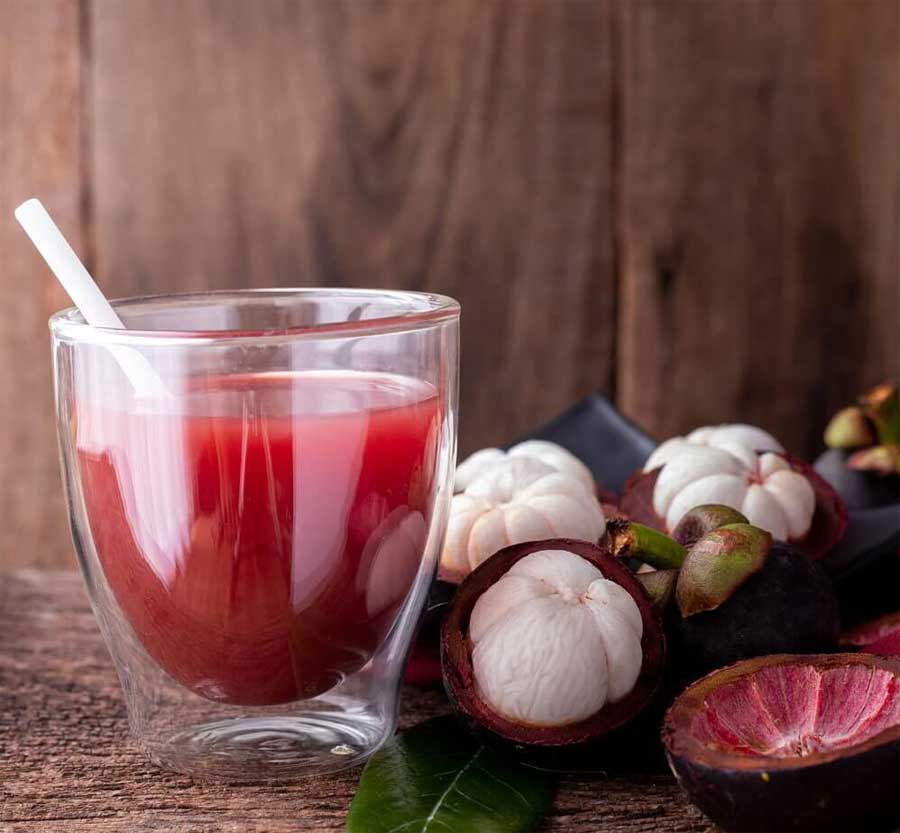Look here about how to improve brain health. Looking for natural remedies to support brain health? Try these 7 herbs and spices that have been proven to improve cognitive function and memory.
The human brain is an amazing organ. It controls all of the body’s functions, from breathing to thinking to moving. It’s no wonder that we want to keep our brains healthy and functioning at their best. There are a number of things we can do to improve our brain health, from eating a healthy diet to getting regular exercise.
One easy way to improve brain health is to add some herbs to your diet. Herbs are packed with nutrients that can help your brain function at its best. Here are seven herbs that are particularly good for improving brain health and function.
7 Herbal Remedies to Improve Brain Health and Function
1. Ginkgo Biloba – Enhancing Memory and Stimulating Brain Health
Ginkgo biloba, also known as the maidenhair tree, is a popular herbal supplement that has been used for centuries in Traditional Chinese Medicine. The leaves of the ginkgo tree are rich in compounds that are thought to be beneficial for brain health, including ginkgo flavonoids and terpenoids. These substances are thought to improve blood circulation and protect against free radical damage.
Ginkgo biloba is often taken as a memory enhancer and has been studied for its potential to improve cognitive function in healthy adults and in people with Alzheimer’s disease and other forms of dementia. There is some evidence to suggest that ginkgo may improve memory and cognitive function in healthy adults, but more research is needed. One small study found that ginkgo improved memory in people with mild cognitive impairment, but it did not improve memory or cognitive function in people with Alzheimer’s disease.
Ginkgo biloba is generally well tolerated, but some people may experience side effects such as gastrointestinal upset, headache, or dizziness. If you are considering taking ginkgo biloba, be sure to talk to your healthcare provider first to discuss whether it is right for you.
2. Ashwagandha – Boosting Brainpower and Mood
There are a lot of things in life that can stress us out and make us feel anxious or down. To help improve our mood and mental clarity, many people turn to adaptogenic herbs like ashwagandha.
Ashwagandha has been used in traditional Ayurvedic medicine for centuries as a way to help the body cope with stress. This herb is thought to help balance the body’s systems and restore harmony.
There is some scientific evidence to support the use of ashwagandha for improving brain health. One study found that taking an ashwagandha supplement for eight weeks improved memory and cognitive function in adults with mild cognitive impairment.
Another study found that taking ashwagandha may help improve mood and reduce anxiety. In this study, people who took ashwagandha had less anxiety and felt more resilient to stress.
If you’re looking for a herbal supplement to help improve your mood and cognitive function, consider ashwagandha. This adaptogenic herb has a long history of use in traditional medicine and there is some science to back up its use for brain health.
3. Rosemary – An Antioxidant-Rich Brain Booster
Rosemary is an evergreen herb that has been used for centuries to improve memory and cognitive function. Modern science is beginning to back up what the ancients knew – that rosemary is a potent antioxidant that can help to improve brain health.
Rosemary is rich in a number of compounds that have powerful antioxidant activity. These include phenolic acids, such as rosmarinic acid, and flavonoids, such as quercetin and rutin. These compounds scavenge harmful free radicals, which can damage cells and lead to inflammation.
Inflammation is thought to be a major contributor to cognitive decline and dementia. Therefore, the anti-inflammatory activity of rosemary may help to protect the brain from age-related damage.
Rosemary also increases blood flow to the brain. This is important because the brain needs a constant supply of oxygen and nutrients in order to function optimally. Rosemary essential oil can be used to improve concentration and memory. Simply inhaling the scent of rosemary can increase cognitive performance and memory retention.
So, if you’re looking for a natural way to boost your brain power, rosemary is a great herb to try. Add it to your diet in the form of roasted vegetables, soups, or herbal teas. You can also use rosemary essential oil in a diffuser or apply it topically to the temples and back of the neck.
4. Sage – Enhancing Cognitive Function
Sage has been used for centuries as a natural remedy to enhance cognitive function and memory. Modern science is now backing up what traditional healers have known all along – that sage is an effective herb for improving brain health.
Sage is a member of the mint family and has a long history of use in traditional medicine. The word sage comes from the Latin word for wisdom, and it is no coincidence that this herb is associated with enhancing cognitive function.
Sage has been shown to improve memory and cognitive function in several studies. In a study of healthy older adults, those who took sage oil supplements for four weeks performed better on memory tests than those who did not take the supplements.
In another study, sage was shown to improve memory and cognitive function in people with Alzheimer’s disease. Alzheimer’s patients who took sage extract for four weeks had improved scores on tests of memory and cognitive function compared to those who did not take the sage extract.
In addition to enhancing memory and cognitive function, sage has also been shown to improve mood and reduce anxiety. In one study, healthy adults who took sage oil capsules for four weeks had reduced levels of the stress hormone cortisol and reported feeling less anxious than those who did not take the sage oil capsules.
If you are looking for a herb to improve brain health, sage is a great option. It is safe, well-tolerated, and has a long history of use in traditional medicine. Plus, there is a growing body of scientific evidence to support its use for enhancing memory and cognitive function.
5. Gotu Kola – Enhancing Memory
Gotu kola has been traditionally used in Ayurvedic and Chinese medicine to enhance memory and treat cognitive disorders. Modern science is beginning to explore the potential brain-boosting effects of this herb.
A small study published in the Journal of Ethnopharmacology found that gotu kola improved memory and cognitive function in rats. The authors suggest that compounds in gotu kola may help to repair damaged neurons and improve blood circulation to the brain.
Another study, published in the Journal of Alternative and Complementary Medicine, looked at the effects of gotu kola on healthy adults. The study found that gotu kola improved memory, attention, and reaction time. The authors suggest that gotu kola may help to protect the brain from age-related cognitive decline.
So far, most of the research on gotu kola and brain health has been done in animals or in test tubes. More research is needed to confirm the brain-boosting effects of gotu kola in humans.
If you’re considering taking gotu kola for brain health, talk to your doctor first. Gotu kola may interact with some medications, and it’s important to make sure it’s safe for you.
6. Bacopa Monnieri – Improving Concentration and Memory
Bacopa Monnieri is a small herb that is native to India. The herb has been used in traditional Ayurvedic medicine for centuries to treat a variety of conditions. Bacopa Monnieri is most commonly used as a memory enhancer and to improve concentration.
The active compounds in Bacopa Monnieri are called bacosides. These compounds work by protecting the brain cells from damage and promoting the growth of new brain cells. Bacosides also help to improve communication between brain cells.
Studies have shown that Bacopa Monnieri can improve memory, attention, and concentration. The herb is also effective in treating anxiety and depression.
If you are looking for a natural way to improve your memory and concentration, Bacopa Monnieri is a great option. The herb is safe and effective, and it has been used for centuries in traditional medicine.
7. Turmeric – Increasing Brain Activity and Neuroprotection
Turmeric is an amazing spice with many health benefits. One of these benefits is its ability to improve brain health. Turmeric can help to increase brain activity and protect the brain from damage.
There are many different nutrients in herbs that can help to improve brain health. Some of these nutrients include:
B vitamins: B vitamins are essential for energy production, and they help to protect the brain from damage.
Vitamin E: Vitamin E is a powerful antioxidant that helps to protect the brain from oxidative stress.
Curcumin: Curcumin is the active ingredient in turmeric. It has powerful anti-inflammatory and antioxidant properties.
Turmeric is a great herb to add to your diet if you want to improve your brain health. It can help to increase brain activity and protect the brain from damage.
Plus: 8. Lion’s Mane – Supporting Memory and Cognitive Function
Herbs for Improving Brain Health. Lion’s mane is an edible mushroom used in traditional Chinese medicine for its brain-supporting benefits. Also known as yamabushitake, this fungus has recently gained popularity for its cognitive-enhancing properties. Researchers believe that compounds in lion’s mane work to boost nerve growth factor (NGF) levels. NGF is a protein that helps to support the health and growth of nerve cells.
Several studies have shown that lion’s mane can improve cognitive function in older adults. In one study, participants who took lion’s mane daily for 16 weeks showed significant improvements in memory and cognitive function, compared to those who did not take the herb. Other research has shown that lion’s mane can help to reduce inflammation and improve nerve function in people with Alzheimer’s disease.
If you’re looking for a herb to help support your memory and cognitive function, consider trying Lion’s Mane. Be sure to talk to your doctor first, as this herb may interact with certain medications.
How to Incorporate Herbs for Brain Health into Your Diet
Your brain is the command center for your body, so it’s important to keep it healthy and functioning properly. There are a number of ways to do this, but one great way is to incorporate brain-healthy herbs into your diet.
Herbs have been used for centuries to promote health and well-being. Today, we know that many herbs can also help to improve brain health. Here are some of the best herbs for brain health and how to incorporate them into your diet:
1. Rosemary
Rosemary is a fragrant herb that is often used in cooking. This herb contains compounds that can improve brain function and memory. Rosemary can be added to dishes like roasted vegetables, soups, and pasta sauces. It can also be used to make delicious tea.
2. Sage
It is another herb that has traditionally been used to improve memory and cognitive function. Sage can be added to a variety of dishes, or it can be made into a tea.
3. Turmeric
Turmeric is a spice that contains a compound called curcumin. Curcumin has been shown to improve brain function and protect against age-related cognitive decline. Turmeric can be added to soups, stews, curries, and other dishes. You can also take turmeric supplements.
4. Ginkgo Biloba
The Ginkgo biloba is a herb that has been traditionally used to improve circulation and cognitive function. Ginkgo biloba supplements can be found in health food stores.
5. Omega-3 Fatty Acids
Omega-3 fatty acids are found in fish oil and certain plant oils. They are essential for brain health and have been shown to improve cognitive function and reduce the risk of age-related cognitive decline. You can get omega-3 fatty acids by eating fatty fish like salmon or by taking fish oil supplements. You can also get omega-3 fatty acids from plant sources like flaxseed oil and chia seeds.
As we get older, it’s important to do everything we can to keep our brains healthy and functioning at their best. One great way to do this is to incorporate brain-healthy herbs into our diets.
Herbs have been used for centuries to promote overall health and well-being. And today, we know that many herbs can also help improve brain health.













